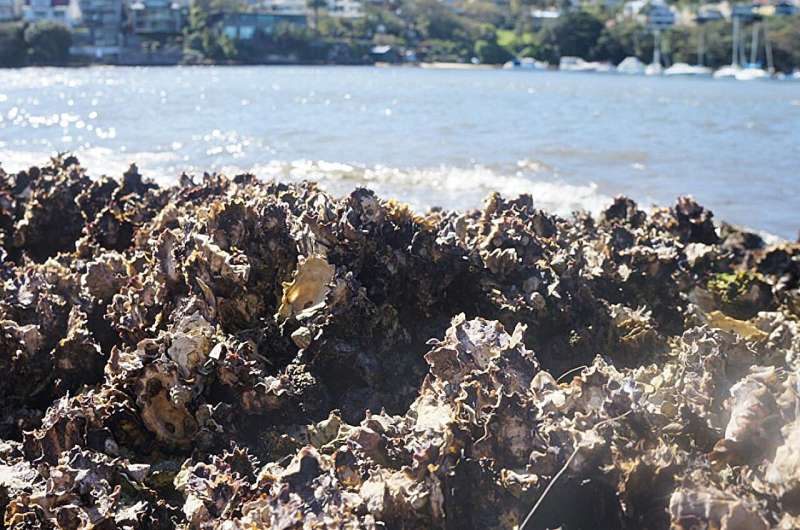This article has been reviewed according to Science X's editorial process and policies. Editors have highlighted the following attributes while ensuring the content's credibility:
fact-checked
peer-reviewed publication
trusted source
proofread
Research shows the ocean is becoming too loud for oysters

Baby oysters rely on natural acoustic cues to settle in specific environments, but new research from the University of Adelaide reveals that noise from human activity is interfering with this critical process.
"The ocean's natural sound is gradually hushing due to habitat loss, leading to a quieter natural environment increasingly drowned out by the crescendo of man-made noise pollution," explained lead author Dr. Brittany Williams, from the University's Southern Seas Ecology Laboratories.
"Numerous marine larvae rely on natural sounds to navigate and select their dwellings, so this interference poses a problem for conservationists aiming to attract oysters to restored reefs using natural sounds.
"Noises from shipping, machinery and construction, for example, are pervasive and pose serious environmental change that affects both terrestrial and marine animals."
According to the research, published in Proceedings of the Royal Society B, marine organisms appear particularly vulnerable to the intensification of anthropogenic noise because they use sound for a range of activities, including to sense their surroundings, navigate, communicate, avoid predators, and find mates and food.
"Our previous work demonstrated that novel acoustic technology can bolster oyster recruitment in habitat restoration projects, but this new research indicates potential limitations of this speaker technology," said the University of Adelaide's Dr. Dominic McAfee, who was part of the research team.
In environments where there is a lot of human noise pollution, the speakers did not increase larval recruitment.
"This suggests that noise pollution might cloak the intrinsic sounds of the ocean, potentially exerting profound ramifications on marine ecosystem vitality and resilience," said co-author Professor Sean Connell, from the University of Adelaide and the Environment Institute.
While acoustic enrichment may be less effective along noisy metropolitan coastlines and urbanized waterways, the researchers are still optimistic about the application of the technique in less trafficked areas.
"Where there is little anthropogenic noise, acoustic enrichment appears to enhance the process of recruitment which is key to restoration success," said Dr. Williams.
More information: Brittany R. Williams et al, Anthropogenic noise disrupts acoustic cues for recruitment, Proceedings of the Royal Society B: Biological Sciences (2024). DOI: 10.1098/rspb.2024.0741
Journal information: Proceedings of the Royal Society B
Provided by University of Adelaide




















